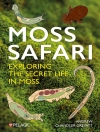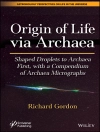Microorganisms are ubiquitous on earth. These microorganisms are able to perform various functions in the environment. Microbial applications are used as biofertilizers, bioremediation, biofortification and other sustainable approaches of environmental development. Indigenous microbial cultures have the potential to perform various functions that are beneficial to achieve the sustainable goals. To date, different strains have been commercialized for the industrial and common applications for the sustainable environment. This book will cover different aspects of microbial technology for sustainable development.
विषयसूची
1 Microbial World for Sustainable Development.- 2 Insights into the rhizospheric microbes and their application for sustainable agriculture.- 3 Different biofertilizers and their application for sustainable development.- 4 Microbial mediated natural farming for sustainable environment.- 5 Rhizosphere Manipulations for Sustainable Plant Growth Promotion.- 6 Rhizospheric Microbes and their mechanism.- 7 Endophytes and Their Applications as Biofertilizers.- 8 Microbial Action On Degradation Of Pesticides.- 9 Biofortification of Plants by using microbes.- 10 Microbial Biopesticides – Development and Application.- 11 Microbial consortia and their application for the development of sustainable environment.- 12 Microbial engineering and applications for the development of value added products.- 13 Plant Growth Promoting Rhizobacteria and their application in sustainable crop production.- 14 Reinstating Microbial Diversity in Degraded Ecosystems for Enhancing their Functioning and Sustainability.- 15 Recent advancements and mechanism of microbial enzymes in sustainable agriculture.- 16 Application of microbial technology for waste removal.- 17 Metagenomics: Insights into microbial removal of the contaminants.- 18 Methods of strain improvement for crop improvement.- 19 Microbial technologies in pest and disease management of tea (Camellia sinensis (L.) O. Kuntze).- 20 Field Application of the Microbial Technology and Its Importance in Sustainable Development.- 21 Solubilization of Micronutrients using Indigenous Microorganisms.- 22 Synergistic interaction of methanotrophs and methylotrophs in regulating methane emission.- 23 Biopesticides: An alternative to synthetic insecticides.- 24 Impact of pesticides on microbial population.- 25 Microbe mediated removal of xenobiotics for sustainable environment.- 26 Harnessing The Rhizomcrobiome Interactions For Plant Growth Promotion And Sustainable Agriculture: Mechanisms, Applications And Recent Advances.- 27 Fungal mycelium-based biocomposites—an emerging source of renewable materials.- 28 An endophytic bacterial approach: A key regulator of drought stress tolerance in plants.
लेखक के बारे में
Pankaj Bhatt
Integrative Microbiology Research Centre,
South China Agricultural University, Guangzhou,
China
Saurabh Gangola
School of Agriculture,
Graphic Era Hill University,
Bhimtal, Uttarakhand, India
Dhanushka Udayanga
Department of Biosystems Technology, Faculty of Technology,
University of Sri Jayewardenepura,
Pitipana, Homagama, Sri Lanka
Govind Kumar
Division of Crop Production,
ICAR- Central Institute for Subtropical Horticulture,
Lucknow, India












